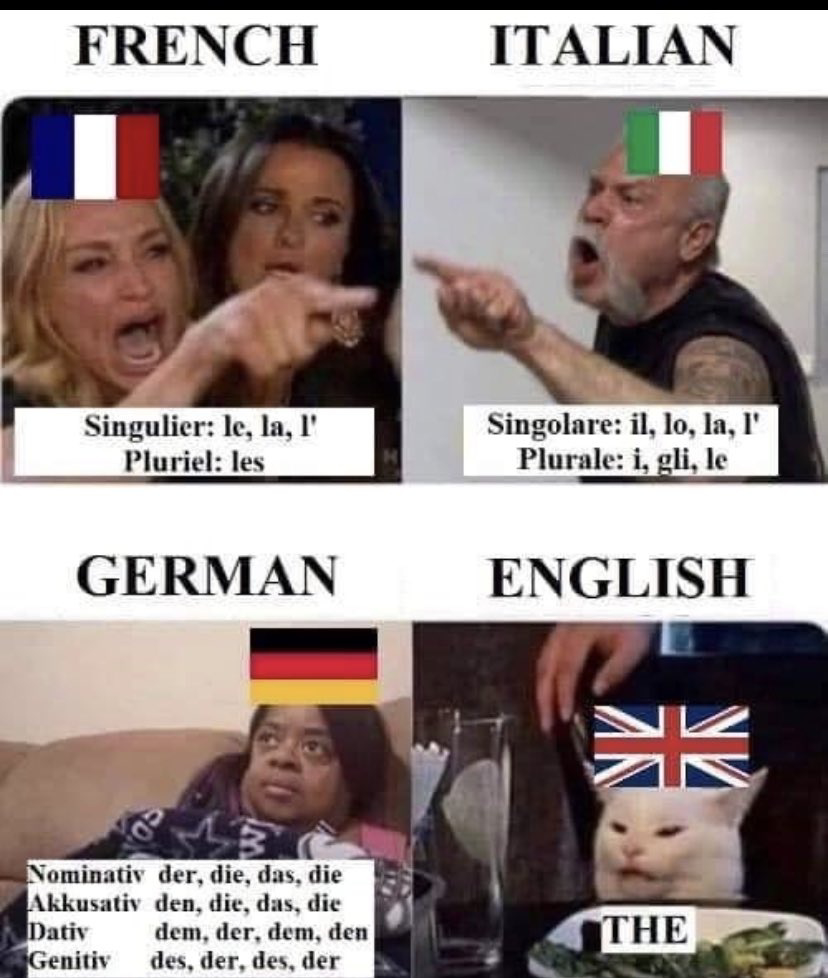this post was submitted on 07 Aug 2023
1027 points (96.7% liked)
Memes
45738 readers
422 users here now
Rules:
- Be civil and nice.
- Try not to excessively repost, as a rule of thumb, wait at least 2 months to do it if you have to.
founded 5 years ago
MODERATORS
you are viewing a single comment's thread
view the rest of the comments
view the rest of the comments

Oh god, I've never thought about that.
Some languages also consider different numbers in different way. I have one ball, two balls, and zero balls. Zero might not be plural like in English. Also, some language have a dual distinction that changes thing when there are two of something (not just singular and plural, but singular, dual, and plural).
In Russian, numbers ending in one are singular, except for eleven which is plural.
It's even more complicated with two plural declensions except for all numbers in 10-20 range having second form
0 мячей
1 мяч
2 мяча, 3 мяча, 4 мяча
5 мячей, 6 мячей, 7 мячей, 8 мячей, 9 мячей, 10 мячей,
11 мячей, 12 мячей, 13 мячей, 14 мячей, 15 мячей, 16 мячей, 17 мячей, 18 мячей, 19 мячей, 20 мячей
21 мяч
22 мяча, 23 мяча, 24 мяча,
25 мячей, 26 мячей, 27 мячей, 28 мячей, 29 мячей, 30 мячей,
... the rest goes the same as 0-10/20-30....
In English that's called paucal vs plural forms, Polish has the same rules as Russian.
Sidenote: there are translation systems that support it, e.g. Qt does (https://doc.qt.io/qt-6/i18n-plural-rules.html).
Neat! I didn't know that. Is that common in other Slavic languages?
English has inconsistent plurals too, one sheep, two sheep, zero sheep, one goose, two geese,...